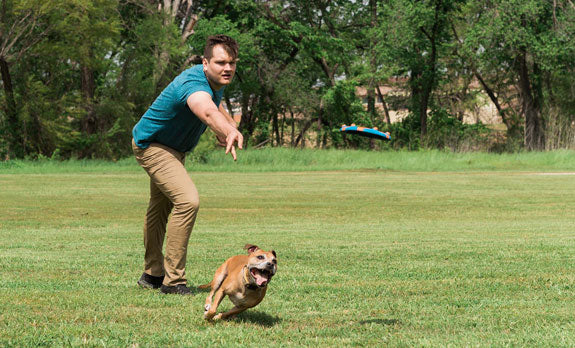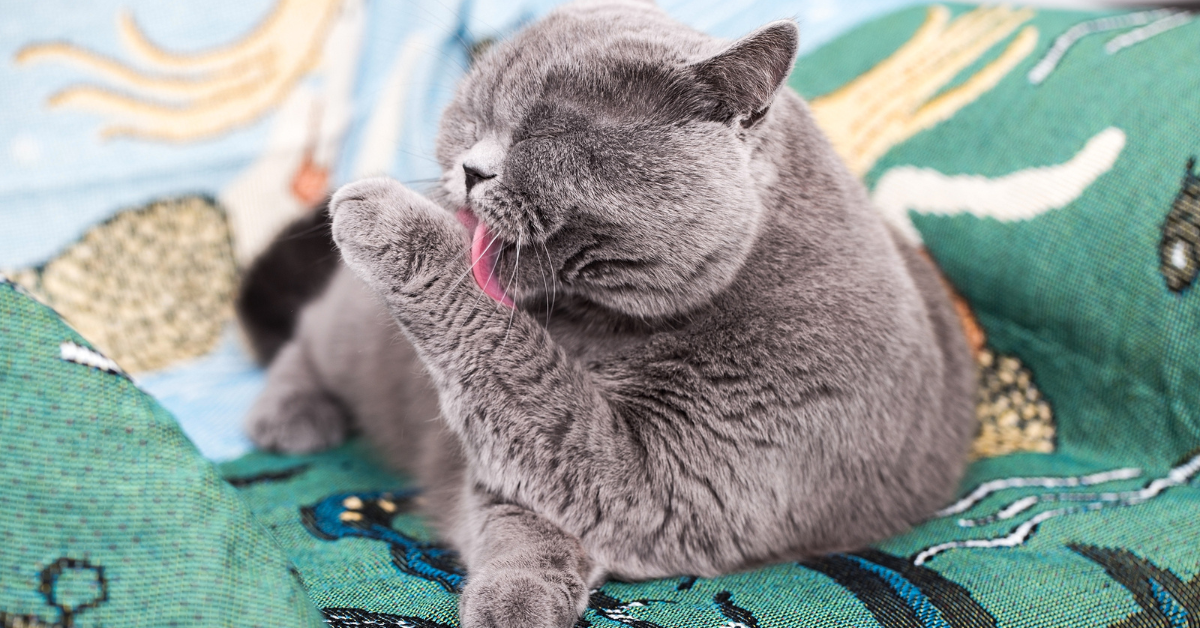Why Do Dogs Get The Zoomies?

Have you ever noticed your dog get a sudden burst of energy, running round and round the backyard or house? Running into the room at full speed, he circles the coffee table and then speeds off down the hallway, thundering through the doorway and back again. Your first thought might be to wonder what he was up to, whether he saw another dog, or if something set him off. Chances are, it was simply a case of the dog zoomies.
WHAT ARE ZOOMIES?
Dog zoomies are a type of Frenetic Random Activity Periods (FRAPs) that usually only last a few minutes at most. As Certified Applied Animal Behaviorist Jill Goldman, Ph. D., explains, "Dog zoomies are bursts of energy like a volcano. Energy builds up, then there is the expression and release of that energy to seemingly wild FRAPping behavior."
There's a misconception that zoomies occue mainly in younger dogs, but it can happen at any age. However, the younger the dog, the more often you can expect zoomies to occur. The more energy a dog has and the fewer opportunities to exert that energy, the more often zoomies may occur.
Older dogs have far less energy than younger dogs and sleep far more often that puppies do. But if older dogs are not allowed to express themselves appropriately, they may also feel the need to zoom. Zoomies are fun for pets of all ages and are perfect for releasing pent-up energy.
Younger dogs generally save their zoomies for the backyard, while older dogs typically do it indoors. If you have more than one dog or you're in a dog park with other dogs, be wary that zoomies can be infectious. The sudden burst of energy from one dog may influence the others to do FRAP as well. More dogs will most likely follow suit until you have a proper stampede of crazy dogs with wild eyes running amok.
WHY DO ZOOMIES HAPPEN?
Various reasons can lead to your dog descending into the zoomies. Below are a few possible causes.
- When he is highly excited, aroused, or after watching another dog engage in high-energy play.
- To release excess energy in the morning after a full night's rest.
- A dog that's been confined to a crate or hasn't been walked is likely to develop a case of the zoomies.
- When he is confused or slightly stressed or nervous. Stressful scenarios like being restrained, getting a bath or grooming, or visiting the vet can also bring about your dog's zoomies.
- Some dogs run around in circles even after a good poop.
CAN ZOOMIES BE DANGEROUS?
If zoomies are as fun as they look, when do they become a cause for concern? If you track your dog's zooming behavior, you can understand why they could become a cause for concern.
Your dog is naturally inclined to zoomies, so it is perfectly normal behavior. For the most part, your dog is just playing and having fun, especially when he is around multiple dogs.
It's all fun and games until your dog takes one turn too many around the coffee table and your favorite vase falls to the floor. Or your dog could slip or run into other items, sharp corners, or other people.
"It's most important to make a distinction between normal zoomies and compulsive behavior like excessive tail-chasing or chasing shadows continuously" says Goldman. If your dog gets the zoomies often or during stressful situations, consult a certified applied animal behaviorist.
HOW TO DEAL WITH THE ZOOMIES
If your dog has daily FRAP episodes, or even several episodes a day, this could be a sign that your dog is not getting enough exercise. You can tire her out by walking with her every day, and if outdoor space is limited, make sure she can run all her energy off by allowing her to run free off-leash. Use this time to grab a Chuckit! Fetch Toy to help your dog get rid of the zoomies!

Control the environment in which he zooms instead of trying to control his zoomies. For example, if you know your dog gets the FRAPS after a bath, make sure you take him directly from the bath to an area he can zoom freely.
Be sure to dog-proof your home or the area where zoomies are allowed. To dog-proof your home, follow these tips:
- It is best to keep your dog away from tile or hardwood floors to prevent him from slipping or falling.
- Be mindful of or cover sharp corners on coffee tables, TV stands, and other household furniture. Secure fragile items as well.
- Do not let young children or elderly family members near your dog when zoomies are occuring.
- Let your dog zoom in a fully fenced yard where he can't run into anything or break something.
CONCLUSION
All in all, zoomies occur naturally in dogs when they have built-up energy they need to release. While it occurs more often in younger dogs, older dogs experience zoomies too. More often than not, zoomie episodes are over within a few minutes. To help your dog release pent up energy, take him on daily walks and allow your dog some time off the leash to run around freely.
Sources:
Previous article

Next article

Related posts
View all-

5 Simple Tips to Make Sure Your Cat Drinks Enough Water
Ensuring your cat stays hydrated is important, but it can be challenging since many cats don't drink enough water. Dehydration can lead to kidney disease and other health issues. Fortunately, you can encourage your cat to drink more with a few simple changes. Read Article -

How to Keep Your Cat Busy at Night (So You Can Sleep)
For many cat owners, the quest for a good night's sleep while keeping their feline friends content and engaged can seem like a never-ending battle. Cats, naturally more active at night or early in the morning, often disrupt your sleep schedules with nocturnal activity, whether through playful nature or seeking attention. Read Article -

Should You Bathe Your Cat? Everything You Need to Know About Cat Hygiene
When it comes to cat hygiene, a common question among cat owners is, "Should you bathe your cat?" Understanding how to care for felines, especially bathing cats properly, is crucial for maintaining their overall health. Most cats are fastidious groomers, but specific scenarios like long-haired cats getting dirty or skin irritations, might require a bath.
Read Article



